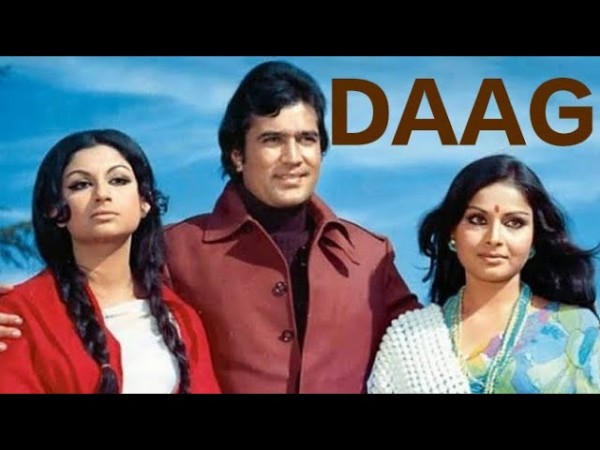
Certain films stand out in the vast canon of Indian cinema not only for their compelling stories but also for their audacious deviance from conventional storytelling norms. Yash Chopra's "Daag" is one such cinematic masterpiece that defied conventional romantic clichés by weaving a story of love and sacrifice with an ending that questions social norms. The 1973 movie "Daag" features a unique love triangle that embraces an unusual resolution; this idea would later be echoed in movies like "Sajan Chale Sasural" and "Sandwich." The complexity of love is explored in the movie, and acceptance of a different kind of relationship adds an enduring layer of mystery to its legacy.
Heart of "Daag" is a touching love triangle between Sunil (Rajesh Khanna), Sonia (Sharmila Tagore), and Sonia's childhood friend Sonia (Rakhee Gulzar). Years later, Sunil, who is believed to be dead, returns to find his beloved Sonia happily married to his best friend Sonia. Sunil is forced to face his emotions and the difficult reality of his altered situation as a result of the revelation. The movie delves deeply into themes of love, sacrifice, and moral integrity, weaving a complex web of feelings that still affects viewers today.
The bold climax of "Daag" distinguishes it from other love stories. Unexpectedly, Sunil decides to accept both Sonia and Sonia as his wives, honoring his love for both of them and recognizing the significant influence they have each had on his life. This original solution defies social expectations and presents an alternative viewpoint on romantic relationships, sparking reflection and conversation about the nature of love and free will.
Through the years, "Daag"'s influence continued to reverberate, inspiring subsequent movies to explore themes of unconventional romance and relationships. Both "Sandwich" (2006) and "Sajan Chale Sasural" (1996), both of which starred Govinda in the lead position, mimicked the daring conclusion of "Daag." These movies carried on the investigation of unusual love triangles while upsetting audience expectations and encouraging discussion about the limits of commitment and love.
"Daag" was created by Yash Chopra, who is renowned for his talent in emotional storytelling, as a testament to the complexity of interpersonal relationships. He prompted viewers to reconsider preconceived notions of love and fidelity by presenting an unconventional ending. "Daag" became a thought-provoking examination of the human heart thanks to Chopra's nimble direction and perceptive storytelling, which took it beyond a simple cinematic experience.
The movie "Daag" is still a masterpiece that provokes thought-provoking conversations about the nature of love, sacrifice, and unusual relationships. Its audacious story and distinctive climax have made an enduring impression on Bollywood and encouraged filmmakers to investigate alternate romantic resolutions. The legacy of "Daag" endures as proof of the ability of cinema to question expectations and inspire reflection on the complexity of the human experience.
A brilliant example of Yash Chopra's cinematic brilliance is "Daag" (1973), which skillfully wove a nuanced tapestry of love and sacrifice. Its ground-breaking conclusion upends expectations and provides a provocative lens through which to view the complexities of interpersonal relationships. In spite of the fact that "Sajan Chale Sasural" and "Sandwich" replicate its outlandish themes, "Daag" stands as a timeless example of how cinema can spur reflection and push the limits of storytelling.
Junglee's Melodic Path and the Creation of Kashmir Ki Kali
The Mesmerizing Spell of Kaaton Se Kheench Ke from the Classic Guide
Yeh Reshmi Zulfein Scripted Mumtaz's Path to Bollywood Glory